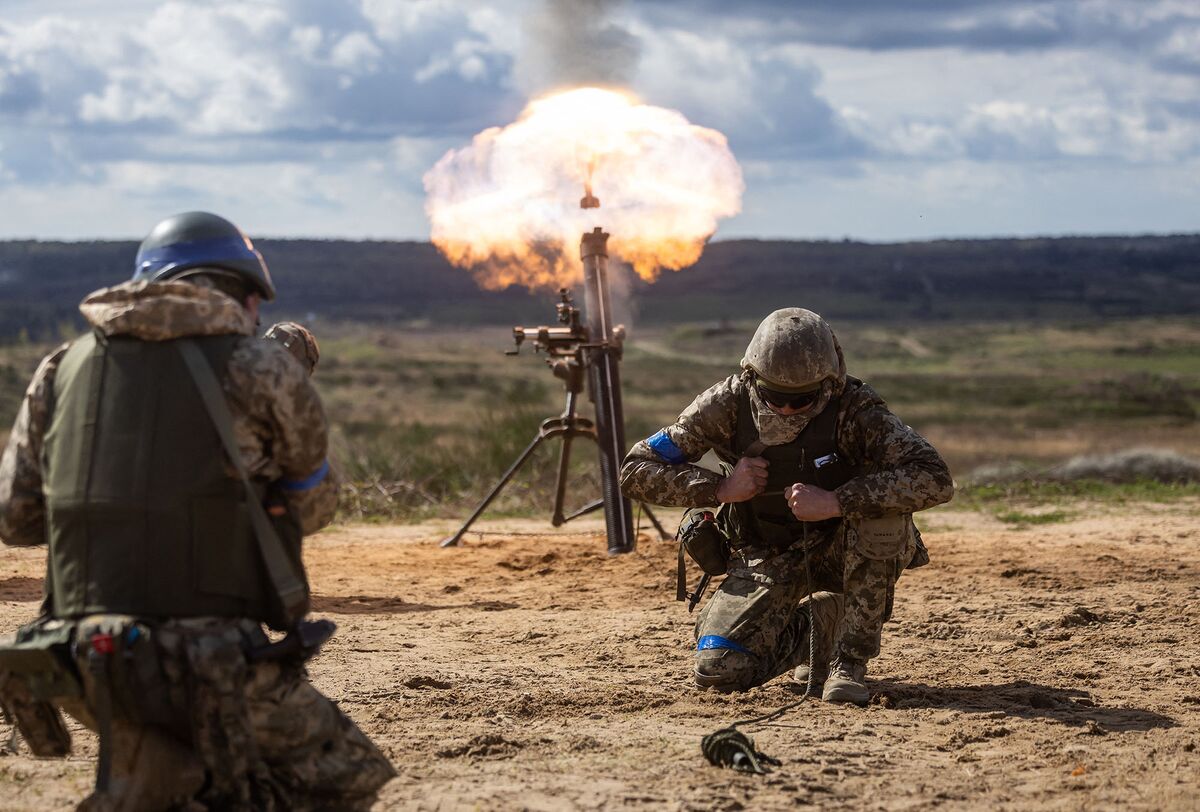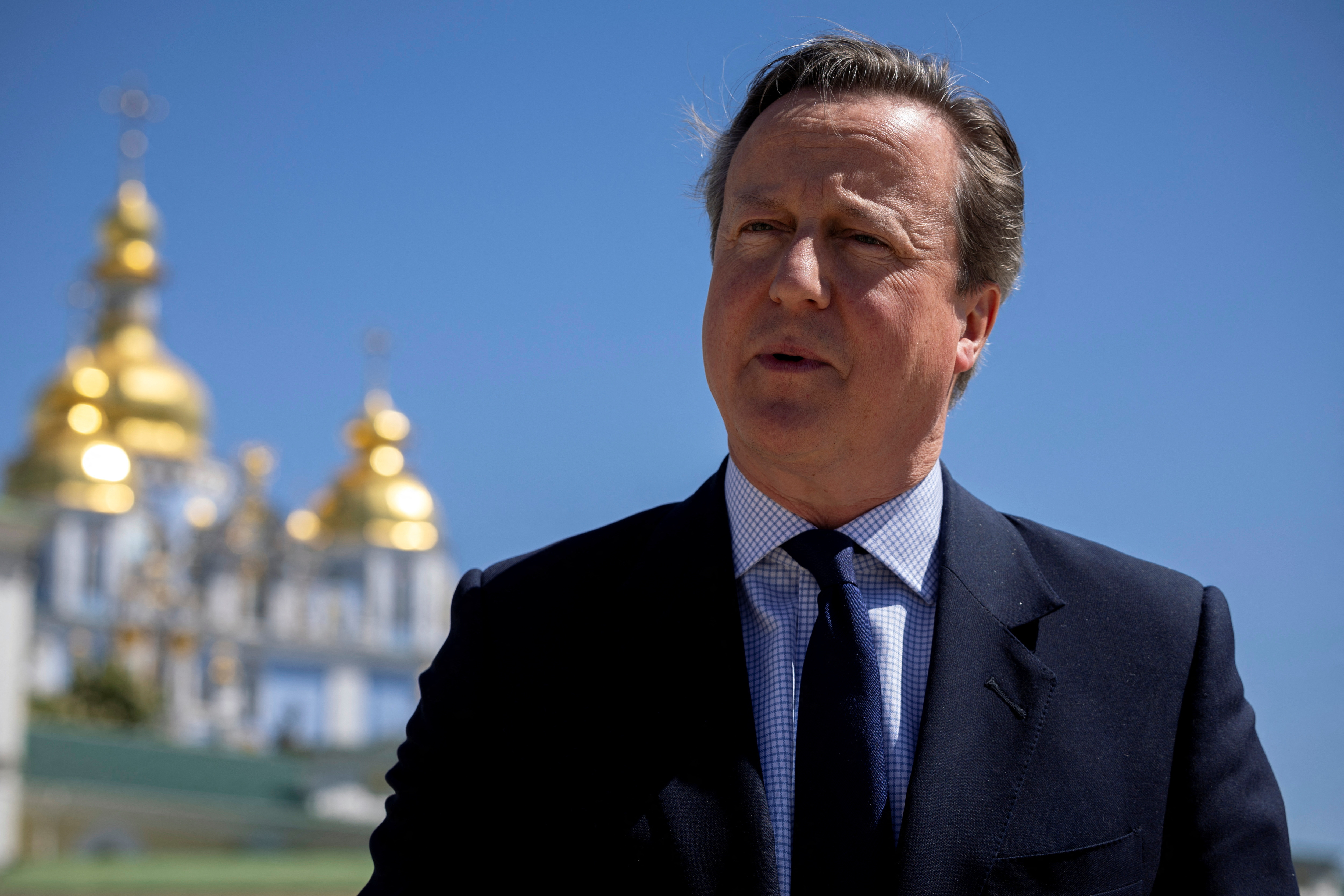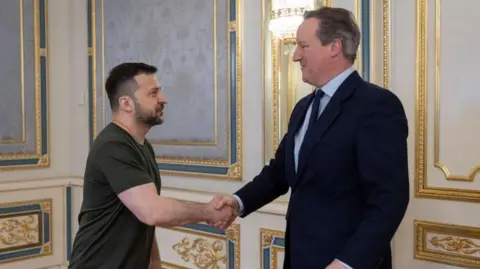So let me get this straight: If we don't continue to send endless money and arms to Ukraine, the evil Putin will win and then, for some unexplained reason, he'll attempt to take over all of Europe...and maybe even the whole world? Is that the general...um, you know..."idea" here? LOL...
How Deep Does Corruption Run in Ukraine?
Ukraine has made significant progress fighting graft, but its record continues to haunt it.
But context and nuance about Ukrainian corruption are also crucial. After all, support for Ukraine’s heroic resistance to Russia’s brutal invasion is a strategic and moral imperative. How, then, should Ukraine’s corruption problems be understood?
- Because corruption is hidden, estimating its scale is always problematic.
- According to the most widely cited source—the annual ranking of corruption by Transparency International (TI)—Ukraine has scored poorly for decades.
- As late as 2016, amid major anti-corruption reforms, TI’s survey still judged Ukraine to be as corrupt as Russia.
- The most recent TI index suggests that Ukraine has made some strides since then, but it still ranks 104th among 180 countries.
- Denmark is ranked first—meaning that it is perceived as cleanest—while Russia ranks 141st.
- Such sources are subjective by definition.
- What’s more, perceptions can be significantly influenced by the level of corruption-related information and debate, including public awareness campaigns, extensive investigative reporting, media discussion of corrupt practices, and comments by public figures.
While Ukraine still carries an international reputation for endemic corruption, it has made major strides in the past decade. A 2018 report by the Kyiv-based Institute for Economic Research and Policy Consulting (IER), refereed by leading Western experts, documented four years of major anti-corruption reforms in the aftermath of the 2013-2014 Maidan protests, which ousted uber-corrupt President Viktor Yanukovych.
The reforms, including transparent government procurement and the deregulation of the notoriously corrupt energy sector, were estimated to have reduced grand corruption—a category that excludes petty corruption, such as police bribes—by a total of approximately $6 billion, or some 6 percent of Ukraine’s official GDP. Reforms of the state tax and revenue authorities also pared the size of the shadow economy, which dropped from an estimated 43 percent of GDP in 2014 to 33 percent in late 2017.
With few exceptions—such as the reintroduction of fixed gas prices to protect consumers during wartime—the reforms introduced during the administration of former President Petro Poroshenko were retained and expanded under current President Volodymyr Zelensky.
Before the reforms, Ukraine’s notoriously corrupt gas market alone had sucked billions of dollars in shady profits out of the state treasury. In the years before the all-out war, gas sector reforms added approximately $3 billion to the state budget. And these efforts are ongoing: Last year, Ukrainian authorities opened a criminal case against Dmytro Firtash, an oligarch also wanted in the United States for corruption, alleging that his group embezzled $484 million from the Ukrainian state treasury in a scheme involving gas transit fees.
Tax administration reforms and an enforcement crackdown have eliminated tax losses amounting to at least $1 billion per year. The reforms included electronic filing for value-added tax, which helped curb graft. Investigators exposed and eliminated a widespread network of corrupt tax evasion—established under Yanukovych—that diverted cash to tax inspectors, who accepted falsified income and expense records in return for 6 to 12 percent of the evaded taxes.
Another landmark anti-corruption reform came in 2016, when Ukraine unveiled a transparent electronic system for public procurement, ProZorro, which has drastically reduced corruption in bidding for government contracts. Funded by the U.S. Agency for International Development and the European Bank for Reconstruction and Development, the system has saved Ukraine almost $6 billion in public procurement costs since 2017, according to a 2021 U.S. government report. The system has been promoted by Transparency International and was recently recognized by the World Bank.
In all, IER calculates that anti-corruption reforms eliminated nearly $4 billion a year in formerly misappropriated revenues. The number is conservative, since it does not include related efforts to clean up Ukraine’s economy, such as banking reforms that eliminated so-called zombie banks that had misappropriated citizens’ savings and other assets to bank managers and owners.
In addition, Ukraine seized $1.5 billion in suspicious assets controlled by what Ukraine’s prosecutor general called an “organized crime group led by Yanukovych” and returned the assets to the state treasury. Ukrainian authorities also temporarily nationalized the banking assets of oligarch Ihor Kolomoysky and began the legal process to restore more than $5 billion that PrivatBank, the bank he co-owned and controlled, is alleged to have stolen through fraudulent loans to foreign shell companies and accounts.
The wave of anti-corruption reforms that began with Yanukovych’s ouster in 2014 continued when Zelensky came into office in 2019. That fall, the new High Anti-Corruption Court launched its first cases; by late 2023, it had convicted 157 government officials and other perpetrators. Since the 2022 invasion, Zelensky’s government has also stepped up asset seizures from companies and individuals in business that had been working with Russia and financing pro-Russian media and political parties in Ukraine. In September 2023, Ukrainian authorities arrested Kolomoysky on a wide range of criminal charges, including forgery and major fraud.
There is no question that Ukraine has made great strides combating corruption, with 11 consecutive years of improving its ranking in the TI Corruption Perception Index.
It’s important, however, to set the scale of these cases in relation to the war. The abuses involved amount to millions or tens of millions of dollars—and while these are large numbers, they are an exceedingly miniscule percentage of Ukraine’s vast military expenditures. Since Russia’s invasion, Ukraine has increased its military budget from $6 billion in 2021 to $35 billion in 2023 and up to $42 billion this year. Together with foreign security assistance, its total military resources have climbed to roughly $75 to $80 billion annually.
This scaling up occurred amid a blistering multifront Russian attack.
In short, Ukraine’s military spending grew exponentially to something approaching half of its 2022 GDP—all while its officials scrambled to purchase, arm, equip, and integrate a rapidly expanding force; had to find ways to replace fast-depleting Soviet-era munitions; and faced massive Russian attacks on the country’s defense industry. All the while, Russia was snatching up as many of Soviet era munitions as it could find on the international arms market in order to deny Ukraine access. In this context, Ukraine turned to various domestic and international middlemen, some of whom were not properly vetted.
Even as it was hunting globally for stores of Soviet-era munitions and weapons, Ukraine also gave priority to systems that would ensure that Western weapons did not become part of corrupt schemes that could threaten Western support.
Given the urgency of moving weapons to the front, it is hardly surprising that in January, the Pentagon’s inspector general found that some $1 billion of U.S.-supplied weapons had not been properly tracked. At the same time, however, Pentagon spokesperson Maj. Gen. Patrick Ryder said that there was “no credible evidence of illicit diversion of U.S.-provided, advanced conventional weapons from Ukraine.”
Nevertheless, with so much cash and equipment in play—and a multiplicity of vendors, contractors, and subcontractors involved—there will likely be some instances of fraud, corruption, or incompetence. Such cases should be measured against the scale and complexity of aid. The fact that no evidence of significant abuses of Western military aid has emerged over the past two years—despite systematic efforts by the Kremlin and its sympathizers in the West to discredit Ukraine—is itself an encouraging sign.
Finally, there is the question of the standard to which Ukraine is being held. In his famous 1982 article in Commentary, “Why We Need More,” the strategic analyst Edward Luttwak highlighted inefficient spending, botched contracts, and failed weapons systems in the U.S. defense budget. His point was that the Reagan administration’s dramatic increase in military spending would necessarily come with substantial inefficiency. Moreover, Luttwak argued that the main objective of the defense establishment should be wise strategy, better operational methods, and more ingenious tactics—all areas in which Ukraine’s military and defense officials have thus far excelled. Luttwak asserted that if the price for strategic, operational, and tactical success is the neglect of “micro-management,” then a little more “waste, fraud, and mismanagement” in the Pentagon would be a reasonable price to pay.
No one wishes to see corruption or mismanagement of public resources, but Luttwak’s point is that whenever there are massive and rapid government spending increases, there will inevitably be failures in the systems that monitor them, no matter the country. Compared to the United States in peacetime, this point is even more relevant in Ukraine, which in a single year saw a more than 1,000 percent increase in its military resources in the middle of an unprovoked invasion by a powerful enemy.
As Ukraine’s war against Russia proceeds, policymakers and the public should expect further corruption scandals. These must be addressed, and their perpetrators punished, but they must also be seen in the proper context. Occasional lurid headlines notwithstanding, Ukraine has made major progress in tackling grand corruption, reducing the power of oligarchs, and managing a vast increase in defense spending without scandals on a massive scale. That in itself is testament to how much has changed in Ukraine since a decade ago.
Ukrainian MP charged with embezzling £220,000
He has not yet publicly responded to the allegations. The BBC has approached him for comment.
In a statement, NABU said that between 2020 and 2021 the MP had acquired assets worth 25m hryvnas (£507,000), while he and his wife's combined declared income and savings at the time was just 14m hryvnas (£284,000).
That left an unexplained difference of 11m hryvnas (£223,000), prosecutors said.
A joint investigation with Ukraine's Specialised Anti-Corruption Prosecutor's Office found the MP had purchased three plots of land near Kyiv, five flats in the Ukrainian capital, two other premises, as well as two cars: a Tesla and a Mercedes-Benz.
NABU alleged that "to conceal the ownership of these assets, the MP registered most of them with close relatives" while retaining full control over them.
The anti-corruption agency credited Bihus, an investigative journalism publication, for bringing the matter to light in a series of articles published in 2021 and 2022.
NABU stressed that the MP was considered innocent until found guilty in court.
Ukraine has been plagued with a history of officials facing accusations of corruption, which has complicated Mr Zelensky's attempts to recast it as a burgeoning Western democracy and seek military aid.
When he came to power in 2019, he described fighting corruption as one of his key priorities. He has since made several culls of top officials over claims of mismanaging public funds. In January, several top officials lost their jobs as part of the latest round of anti-corruption measures.
- Ukraine war: Hopes of rebuilding rely on fighting corruption
- Ukrainian billionaire held in anti-corruption drive
In 2023, Ukraine was ranked 104th out of 180 countries in a corruption perception index by NGO Transparency International - 12 places up from the previous year.
On Wednesday, Mr Zelensky dismissed Illya Vityuk, head of cybersecurity for the Security Service (SBU).
The decree followed reports that a plain-clothed SBU officer attempted to hand a summons to an investigative journalist, after he published a story claiming Mr Vityuk's wife had understated the value of a luxury flat she had bought on an official declaration.
The SBU told Slidstvo at the time that Mr Vityuk's wife was a "private entrepreneur" who had purchased the property using her own "income and savings".
c






.gif)
.gif)




No comments:
Post a Comment